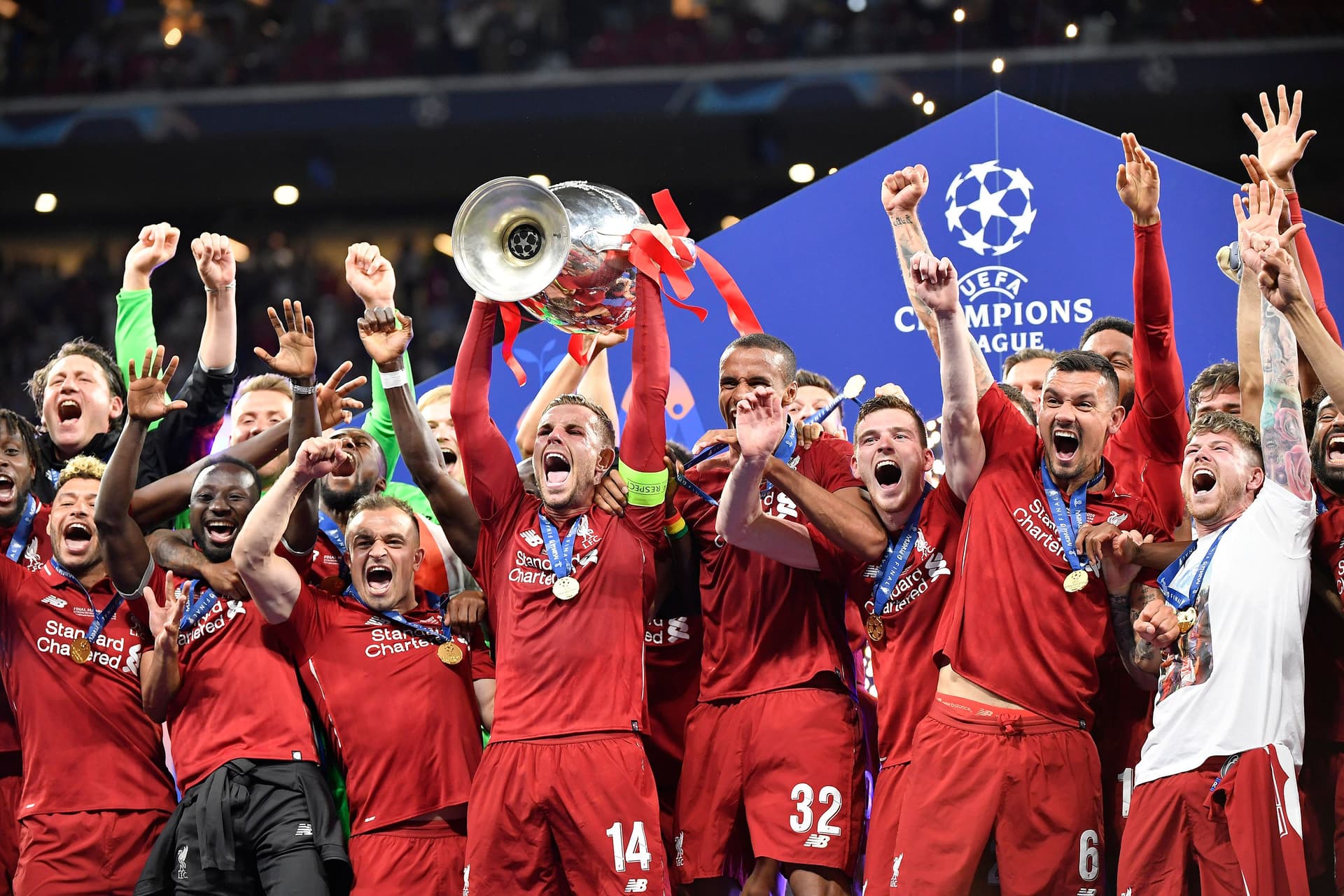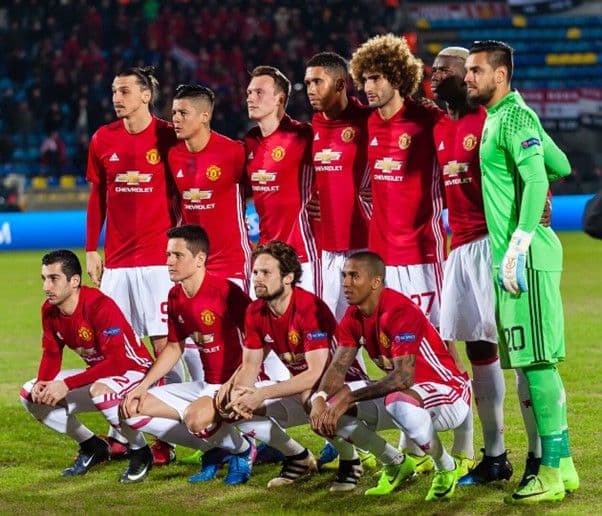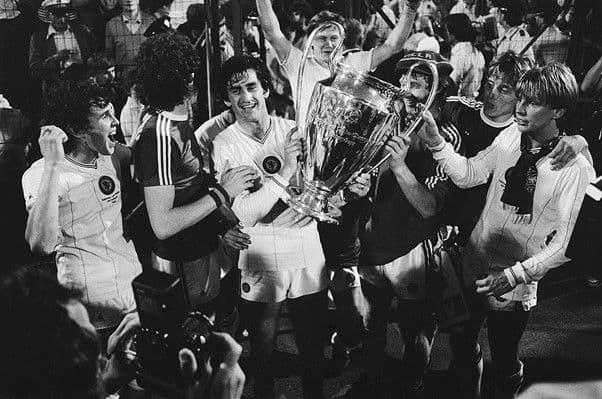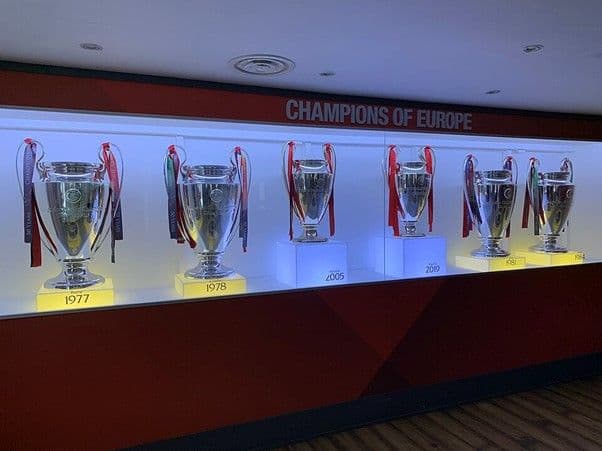Football
How Does European Qualification Work In The Premier League?
The 2023/24 Premier League is over, but these are English teams who qualified for next season’s UEFA Champions League, Europa League, and Europa Conference League.

Image Credits: Giuseppe Maffia/NurPhoto via Getty Images
The process for English Premier League European qualification is straightforward, although this season saw many scenarios for the final spots for UEFA’s three cup competitions come down to the final day of the campaign and the outcome of the 2024 FA Cup final between Manchester City and Manchester United.
The top four teams in the Premier League (PL) qualify for the UEFA Champions League. The winners of the Champions League and Europa League (UEL) can also qualify for the Champions League, there can only be a maximum of five English teams in the UCL at one time.
Two Europa League places are reserved to Premier League clubs if they fulfil certain criteria. The fifth-placed side qualify for the group stage. The winners of the FA Cup claim the last UEL spot. However, if the top five clubs qualify for the UCL through winning the CL or UEL, the sixth-placed English club goes to the next Europa League tournament.
Most Champions League (UCL) Titles In British Football History
Rank 1:
Club: Liverpool
CL Title: 6
Winners: 1977 - 1978, 1981 - 1984, 2005 - 2019
Runner-ups: 1985 - 2007, 2018 - 2022
Rank 2:
Club: Manchester United
CL Title: 3
Winners: 1968 - 1999 -2008
Runner-ups: 2009 - 2011
Rank 3:
Club: Chelsea
CL Title: 2
Winners: 2012 - 2021
Runner-ups: 2008
Rank 4:
Club: Nottingham Forest
CL Title: 2
Winners: 1979 - 1980
Runner-ups: -
Rank 5:
Club: Celtic
CL Title: 1
Winners: 1967
Runner-ups: 1970
Rank 6:
Club: Manchester City
CL Title: 1
Winners: 2023
Runner-ups: 2021
Rank 7:
Club: Aston Villa
CL Title: 1
Winners: 1982
Runner-ups: -
Rank 8:
Club: Leeds United
CL Title: 0
Winners: 0
Runner-ups: 1975
Rank 9:
Club: Arsenal
CL Title: 0
Winners: 0
Runner-ups: 2006
Rank 10:
Club: Tottenham Hotspur
CL Title: 0
Winners: 0
Runner-ups: 2019
The English Football League Cup (EFL Cup) winners qualify for the playoff stages for the UEFA Europa Conference League (UECL).
However, like the Champions League and Europa League, Europa Conference League qualifications changes if the FA Cup winners finish in the top five of the Premier League. Their UEL group stage place will go to the next-highest ranked club not qualified for UEFA competitions in the Premier League.
Moreover, if the EFL Cup winners finish in the top five of the Premier League - or top six in the event of the above circumstances, their UECL playoff place will go to the next-highest ranked club not qualified for UEFA competitions in the PL.
Premier League European qualification might seem a convoluted process, but SportsBoom is here to break down how Premier League clubs qualified for the different UEFA competitions, along with which tournament the clubs will play in next season.

Image Credit: Светлана Бекетова
Premier League UEFA Champions League (UCL) Qualification
After another gripping nine months, the 2023/24 Premier League season is over. Manchester City won an unprecedented fourth title in a row, edging Arsenal and Liverpool to the title. The top four places in the Premier League receive automatic European qualification for the 20024/25 UEFA Champions League.
Manchester City, Arsenal, Liverpool, and Aston Villa finished in the top four, qualifying for the group stage proper next season. City, Arsenal, and Liverpool fought a three-way battle for the PL title. Arsenal and Liverpool pushed City all the way.
The Merseyside club dropped off in the last few matches, but the Gunners took the Manchester club to the final day of the season. City showed no nerves and managed to win comfortably to retain their title. Liverpool, however, are England’s most successful club, one of the best football teams of all time, never mind in Europe.
Premier League Champions League Qualified Clubs 2024/25
| 2024 PL Standings | Club | CL Titles | Winners | Runners-up |
| 1 | Manchester City | 1 | 2023 | 2021 |
| 2 | Arsenal | 0 | N/A | 2006 |
| 3 | Liverpool | 6 | 1977, 1978 1981, 1984 2005, 2019 | 1985, 2007 2018, 2022 |
| 4 | Aston Villa | 1 | 1982 | N/A |
Aston Villa were the surprise team of the year. They edged Tottenham Hotspur in a hotly contested race for the final UCL spot. Villa’s remarkable turnaround under manager Unai Emery, saw the Birmingham club qualify for Europe’s elite cup competition for the first time since 1983.
Villa’s incredible home form propelled them ahead of Tottenham, who were top of the Premier League after the first 10 games, but Ange Postecoglou’s side fell apart in the final two-thirds of the campaign.
Manchester United’s shock 2-1 FA Cup victory over Manchester City sealed the European qualification fate of several Premier League teams. United’s win had ramifications for Spurs, Chelsea and Newcastle United, who had all but cemented their places in Europe next season. United’s incredible cup upset against their noisy neighbours delivered blows to all three.

Image Credits: Marcel Antonisse / Anefo
How Does Winning UCL/UEL affect European Qualification?
Things can seem complicated when multiple Premier League teams win tournaments, but these teams still qualify for Europe, simply different cup competitions. If a top-flight English club win the UEFA Champions League, they will automatically qualify for the group stage of next season's competition irrespective of their league standing.
If a Premier League team win the UEFA Europa League, they automatically qualify for the group stage of the following season's Champions League no matter of their final league position. Provided that an English team wins the Champions League or Europa League, and finish inside the top four, that team’s qualification for the UCL through their league position is not handed to another club.
Should a Premier League team win the UCL and/or another team win the UEL and neither team have qualified for UEFA competitions through their league positions or by winning the FA Cup or EFL Cup, they will still qualify for the Champions League.
The winners of the Europa Conference League are guaranteed a place in the Europa League group stages. On condition that a Premier League club win the Europa Conference League and do not qualify for the Europa League via the Premier League or the FA Cup, then they enter the Europa League group stages as an additional club.
Any team qualifying for the UCL or UEL by winning a UEFA club competition does not impact the qualification of other teams through their league position or by winning a domestic cup.

Image Credits: Reubentg
Who Qualified For The UEFA Europa League (UEL) 2024/25 Season?
Manchester United’s improbable FA Cup win versus Manchester City has massive ramifications for UEFA Europa League and Europa Conference League places for next season. London clubs Tottenham Hotspur and Chelsea qualified for the Europa League after finishing fifth and sixth in the Premier League, respectively.
Liverpool, Chelsea, and Newcastle United all qualified for the Europa Conference League. The Merseyside club qualified after winning the League Cup in February, but because they finished third in the league, they qualified to play in the Champions League, Europe’s elite club competition.
Chelsea had qualified for the UEL for finishing sixth, but City’s derby-day defeat at Wembley knocked the London club out of the Europa League and into the Europa Conference League. Newcastle suffered from Chelsea’s misfortune, except they lost out on European football, altogether.
Rank 1:
Club: Liverpool
UEL Title: 3
Winners: 1973 - 1976 2001
Runner-ups: 2016
Rank 2:
Club: Tottenham Hotspur
UEL Title: 2
Winners: 1972 - 1984
Runner-ups: 1974
Rank 3:
Club: Chelsea
UEL Title: 2
Winners: 2013 - 2019
Runner-ups: -
Rank 4:
Club: Manchester United
UEL Title: 1
Winners: 2017
Runner-ups: 2021
Rank 5:
Club: Ipswich Town
UEL Title: 1
Winners: 1981
Runner-ups: -
Rank 6:
Club: Arsenal
UEL Title: 0
Winners: -
Runner-ups: 2000 - 2019
Rank 7:
Club: Wolverhampton Wanderers
UEL Title: 0
Winners: -
Runner-ups: 1972
Rank 8:
Club: Middlesbrough
UEL Title: 0
Winners: -
Runner-ups: 2006
Rank 9:
Club: Fulham
UEL Title: 0
Winners: -
Runner-ups: 2010
Rank 10:
Club: Manchester City
UEL Title: -
Winners: -
Runner-ups: -
Football can be cruel. The Magpies lost their European spot because of the FA Cup result. Liverpool winning the Carabao Cup gave the Toon Army a slim chance at the UECL, but United’s win knocked them out.
Moreover, United’s FA Cup success saw the Manchester club qualify for the Europa League despite finishing eighth in the Premier League, their worst league placing since the Premier League’s inception in 1992.
The only way a team can qualify for Europe after finishing below seventh place is by winning one of England’s two domestic cup competitions, which Erik Ten Hag’s side did – it might not be the Champions League, but it is still European football.
For more features, guides, and the latest news in the world of football, stay connected to SportsBoom.com.

Image Credits: Damine178
FAQs
Which English Premier League club has won the most UEFA Champions League titles?
Liverpool Football Club has won six Champions League titles, the most by an English team in the tournament’s history.
Who was the last English Premier League club to win the UEFA Champions League?
Manchester City were the last English club to win the Champions League in 2023.
Which English Premier League club has won the most UEFA Europa League titles?
Liverpool Football Club has won three Europa League titles, the most by an English team in the tournament’s history.

Kaylan Geekie is a sports fanatic. He attended Durban High School before moving to Scotland, where he lived for 15 years. During his time in the United Kingdom, Kaylan graduated with a first-class BA Honours Degree in Sports Journalism at the University of the West of Scotland. Kaylan worked for nine years as the Match-Day Editor of SuperXV.com, reporting on Super Rugby, The Rugby Championship, the 2015 Men's Rugby World Cup and the 2017 British & Irish Lions series for the website.